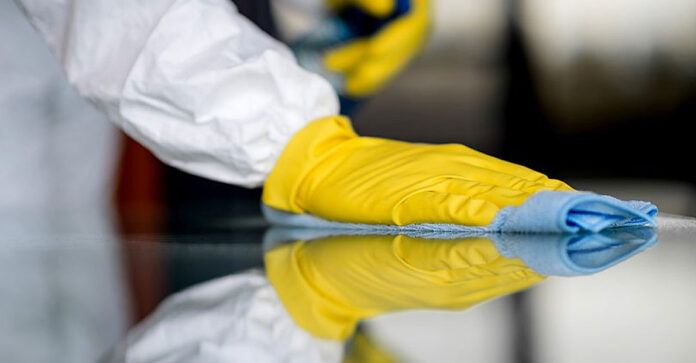
By Stacy M. Brown, NNPA Newswire Senior National Correspondent
Travel has increased exponentially, and people increasingly are displaying more confidence that the worst of the pandemic is over.
Like many, Alice Anderson had concerns about germs before COVID, and she believes there remain reasons all should still be cautious.
The parent of a child with life-threatening food allergies, the founder of Mommy to Mom, said she couldn’t help being concerned with how much cleaning and disinfecting has taken place everywhere she’s visited.
“Although researchers haven’t figured out what causes food allergies yet, the ‘hygiene hypothesis’ is an interesting theory,” Anderson remarked.
“It suggests that the lack of exposure to germs in a child’s environment can result in their immune system being unchallenged, which could lead to the possible development of different allergies.”
As stores and online shops continue to sell out of items quickly and routinely like Lysol, bleach and other disinfectants, health experts now fear that all the cleaning solutions used during the pandemic can threaten people’s health.
Researchers now suggest that the over-disinfecting of our homes, vehicles, and other habitable spaces poses a severe health danger.
“We’re starting to realize that there’s collateral damage when we get rid of good microbes, and that has major consequences for our health,” B. Brett Finlay, the first author of a paper from the Proceedings of the National Academy of Sciences (PNAS), told the New York Times.
Finlay, a professor in the department of microbiology and immunology at the University of British Columbia, counted among a global consortium of health researchers to raise the alarm about a microbial fallout that could follow in the pandemic’s wake.
According to the report, “their worries center on the human microbiome – the trillions of bacteria that live on and inside our bodies.
“They say that excessive hygiene practices, inappropriate antibiotic use, and lifestyle changes such as distancing may weaken those communities going forward in ways that promote sickness and imperil our immune systems. By sterilizing our bodies and spaces, they argue, we may be doing more harm than good.”
Dr. Finlay and others argue that “our collective health may depend on our willingness to holster our sanitizers and cleansers, moderate our use of bacteria-slaying drugs, and resume old habits that nourish our microbial communities. In other words, we’re going to have to live with germs again,” the Times report, quoting the PNAS paper, continued.
A clean, sterilized environment is critical to preventing the spread of germs and infection, said Jill Lieberman of safehandles.com .
“However, we need to be selective with the products we use because they often cause more harm than good,” Lieberman added. “It is concerning that so many cleaning products come with a warning label and contain chemicals which can be dangerous and even toxic. Cleaning with chemicals needs to be avoided, yet it is still necessary to sterilize our spaces to eliminate germs,” Liberman continued.
The Centers for Disease Control and Prevention (CDC) recommends handwashing with soap and water after individuals have visited a public place, coughed, or sneezed.
If soap and water isn’t available, the CDC recommends using a hand sanitizer containing at least 60 percent alcohol and regularly clean frequently touched surfaces like doorknobs, light switches, faucets, and countertops.
The Cleveland Clinic also provided the following guidelines:
- Find ways to cope with stress. Stress causes your body to make a hormone called cortisol. Over time, cortisol can lead to inflammation and reduce your body’s ability to fight infections.
- Fuel-up smartly. A well-rounded diet with ample amounts of fiber and healthy fats helps keep inflammation at bay.
- Keep moving. Regular exercise helps keep your immune system running smoothly.
- Get your Zzzs. The average adult needs about seven to nine hours of sleep a night.
- Avoid harmful substances. Smoking and excessive drinking can weaken your immune system.


